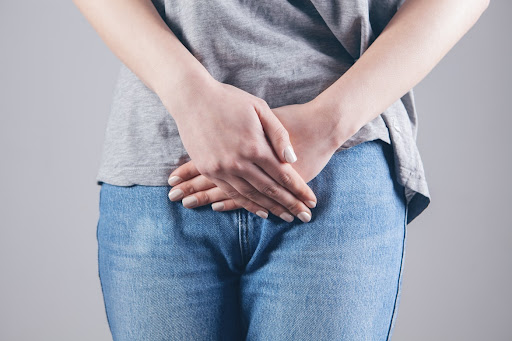As the author Tarō Gomi tells us, everyone poops. Unfortunately, sometimes our bowel movements may not always be the healthiest. Two of the most common digestion-related health problems are diarrhea and constipation.
If you find yourself using the bathroom more frequently after using cannabis, or if you’re using medical marijuana to treat an issue like irritable bowel syndrome (IBS) or inflammatory bowel disease (IBD), you may wonder, ”Can weed cause diarrhea?”
In this article, we’re sitting down with the science to uncover how marijuana interacts with the digestive system, whether it can help or hurt bowel movements, and how you can determine if a recent bout of diarrhea was caused by smoking weed.
How Cannabis Can Help with Bowel Movements
Anecdotal reports go both ways, and more research will need to be conducted before scientists can say for certain how cannabis impacts bowel movements. But early findings suggest that cannabis is more likely to alleviate diarrhea or constipation – as well as associated symptoms – than cause them.
One study states that "recent MJ use was associated with a 30% decreased odds of constipation." These researchers also found that "there was no association between recent MJ use and diarrhea."¹
Another study focused on the therapeutic use of cannabis for inflammatory bowel disease found that "a significant portion of IBD patients, particularly those with severe disease, use cannabis to relieve symptoms of pain, nausea, and appetite and to improve their overall mood."² Since diarrhea is one of the primary symptoms of IBD, it's unlikely patients would turn to cannabis for relief if it had worsened their symptoms.
So how, exactly, does cannabis affect the digestive system?
The reason that cannabis consumption has an effect on human beings is because of the endocannabinoid system (ECS) in our bodies. The ECS is a series of signals and receptors throughout our brains, bodies, and nervous systems. Cannabis produces phytocannabinoids like tetrahydrocannabinol (THC), which are chemically similar to the endocannabinoids found in our bodies. As a result, cannabinoids from cannabis are able to bind to our body’s ECS receptors, producing a variety of effects.
- When THC binds to CB1 receptors in your brain, it can result in intoxicating effects.
- When cannabinoids bind to receptors in the nervous system, they can affect bodily functions like pain regulation³ and inflammation.⁴
- When cannabinoids like THC and CBD bind to receptors in the digestive system, they can play a role in alleviating gastrointestinal inflammation⁵ and other digestive diseases⁶ that may cause diarrhea or constipation.
Research suggests the ECS "influences gastrointestinal homeostasis through anti-inflammatory, anti-nociceptive, and anti-secretory effects."⁷
It’s clear that cannabis can affect the digestive system. So, how can you know if cannabis can help with diarrhea or constipation? And, importantly, how can you tell if smoking weed may be contributing to diarrhea or constipation?
What Are Diarrhea and Constipation?

Diarrhea is defined as loose, watery poops. It's a fairly common problem that can be caused by various conditions and ailments. Sometimes, diarrhea may be experienced by itself. Other times, it can occur alongside other digestive or stomach-related symptoms, such as nausea, vomiting, or rapid weight loss.
What Are the Symptoms of Diarrhea?
- Loose & watery poop,
- Stomach pain or cramps,
- The pressing need to poop,
- Feeling bloated or nauseous.
While it may feel uncomfortable and unpleasant, diarrhea usually only lasts for a day or two. If you've experienced diarrhea over the course of several weeks it may indicate a more serious medical problem like celiac disease or irritable bowel syndrome.
Constipation, on the other hand, is defined by difficulty pooping or infrequent bowel movements.
What are the Signs of Constipation?
- Fewer than three bowel movements a week (or less),
- Excess difficulty passing stool,
- Noticeable feelings of blockage in the digestive tract,
- Inability to poop.
Everyone's healthy bowel movement frequency may be slightly different; anywhere from once every other day to three times a day is considered normal. Most people may experience mild constipation from time to time. If you have fewer than three poops a week, you may be experiencing constipation.
How to Recognize Weed-Induced Diarrhea and Constipation
There is limited research regarding diarrhea, constipation, and how they may be affected by marijuana use. Some preliminary studies have suggested that there is a lower incidence of constipation among cannabis users compared to the general population.⁸ No link between marijuana use and diarrhea was found in any of the studies we reviewed.
There are many potential causes of diarrhea and constipation, and it’s unlikely to be caused directly by cannabis consumption. However, there are steps you can take to reduce the odds that your next joint or dab will result in digestive problems.
If you are experiencing diarrhea or constipation symptoms that persist for several days or weeks, it's best to consult a medical professional who can conclusively diagnose the cause of your digestional issues.
Leave Out the Mixes When Smoking Weed

Some cannabis smokers mix their marijuana with tobacco. When the two are mixed and rolled into a joint, it’s called a spliff.
If you experience digestive troubles after combining tobacco and cannabis, it may be time to kick the nicotine. That’s because smoking tobacco may have its own laxative effect (though most current evidence is anecdotal).⁹
You should do your best to avoid mixing tobacco with your cannabis, considering the significant health risks of tobacco use. Any amount of smoke in your lungs, regardless of where it's derived, isn't great, including cannabis smoke.
If you only smoke pure cannabis flower and still experience digestion or intestinal issues after smoking, consider trying another consumption method. Tinctures, pills, edibles, vaping, and even THC inhalers offer comparable effects. And if you continue to experience digestive problems after switching, it may be more likely that cannabis is the culprit.
When Should I Seek Medical Help?

In most cases, diarrhea and constipation resolve within a day or two. Typically, people may experience one or the other because of something they ate.
In some cases, diarrhea can be a symptom of cannabis hyperemesis syndrome (CHS). In short, CHS is a rare condition researchers currently believe is caused by excessive cannabis consumption that results in intense, persistent bouts of vomiting. In most cases, this vomiting is the primary symptom of CHS, but diarrhea could also occur.
CHS is typically resolved by refraining from using marijuana or marijuana products.¹⁰
Outside of CHS, it's not likely for cannabis use to cause severe diarrhea or constipation. Regardless, gastrointestinal or digestive problems should not be ignored if they persist for several days or worsen over time.
Medical conditions such as rectal or colon cancer, Celiac disease, Inflammatory Bowel Disease, Irritable Bowel Syndrome, and other intestinal and digestive problems can all cause persistent diarrhea that may not resolve itself.
If you are experiencing diarrhea or constipation that lasts for several weeks or whose symptoms are severe, you should consider seeking professional medical help.
Smoking vs Edibles: Which is Healthier?
If you're interested in trying medical marijuana to alleviate digestive problems such as diarrhea or constipation, you may wonder which is the healthier option: smoking or eating edibles.
Edibles are foods that are infused, one way or another, with cannabinoids such as THC or CBD. When you eat them, the THC is metabolized through the digestive system to deliver the intoxicating effects.
Because of how they are processed in the body, edibles have the potential to cause digestive problems. Depending on the ingredients and your dietary restrictions, eating edibles could cause indigestion, stomach pain, or diarrhea. However, these side effects would more likely be caused by what the edible was made with rather than the cannabis itself.
And while most edibles include sugar, they're usually seen as the healthier option than smoking because inhaling smoke can cause irritation of the lungs and throat.
Conclusion
Current studies have failed to draw a direct connection between THC or CBD and digestion difficulties. Of course, more studies are needed before researchers can say for sure if there is a link between gastrointestinal issues and cannabis use.
If you are experiencing chronic diarrhea while using cannabis, you should consult your doctor to see if your marijuana usage is contributing to your symptoms or if they could be a sign of something more serious.
Sources:
¹ Adejumo, Adeyinka Charles, et al. “Relationship between Recreational Marijuana Use and Bowel Function in a Nationwide Cohort Study.” The American Journal of Gastroenterology, vol. 114, no. 12, Dec. 2019, pp. 1894–1903, 10.14309/ajg.0000000000000441. Accessed 30 July 2020.
² Ahmed, Waseem, and Seymour Katz. “Therapeutic Use of Cannabis in Inflammatory Bowel Disease.” Gastroenterology & Hepatology, vol. 12, no. 11, 2016, pp. 668–679, www.ncbi.nlm.nih.gov/pmc/articles/PMC5193087/.
³ Guindon, Josée, and Andrea G. Hohmann. “The Endocannabinoid System and Pain.” CNS & Neurological Disorders Drug Targets, vol. 8, no. 6, 1 Dec. 2009, pp. 403–421, www.ncbi.nlm.nih.gov/pmc/articles/PMC2834283/.
⁴ Nagarkatti, Prakash, et al. “Cannabinoids as Novel Anti-Inflammatory Drugs.” Future Medicinal Chemistry, vol. 1, no. 7, Oct. 2009, pp. 1333–1349, www.ncbi.nlm.nih.gov/pmc/articles/PMC2828614/, 10.4155/fmc.09.93.
⁵ Izzo, Angelo A., and Keith A. Sharkey. “Cannabinoids and the Gut: New Developments and Emerging Concepts.” Pharmacology & Therapeutics, vol. 126, no. 1, Apr. 2010, pp. 21–38, 10.1016/j.pharmthera.2009.12.005.
⁶ Quezada, Sandra M., and Raymond K. Cross. “Cannabis and Turmeric as Complementary Treatments for IBD and Other Digestive Diseases.” Current Gastroenterology Reports, vol. 21, no. 1, Jan. 2019, 10.1007/s11894-019-0670-0. Accessed 8 Dec. 2022.
⁷ Gotfried, Jonathan, et al. “Role of Cannabis and Its Derivatives in Gastrointestinal and Hepatic Disease.” Gastroenterology, vol. 159, no. 1, 1 July 2020, pp. 62–80, www.sciencedirect.com/science/article/abs/pii/S0016508520305631, 10.1053/j.gastro.2020.03.087. Accessed 15 Dec. 2020.
⁸ “Relationship between Recreational Marijuana Use and Bowel Function in a Nationwide Cohort Study.” The American Journal of Gastroenterology, vol. 114, no. 12, Dec. 2019, pp. 1894–1903, 10.14309/ajg.0000000000000441. Accessed 30 July 2020.
⁹ “Do Cigarettes Make You Poop? Research, Digestive Effects & More.” Healthline, 25 Mar. 2019, www.healthline.com/health/smoking/do-cigarettes-make-you-poop.
¹⁰ Allen, J H. “Cannabinoid Hyperemesis: Cyclical Hyperemesis in Association with Chronic Cannabis Abuse.” Gut, vol. 53, no. 11, 1 Nov. 2004, pp. 1566–1570, 10.1136/gut.2003.036350. Accessed 5 Feb. 2020.
The information in this article and any included images or charts are for educational purposes only. This information is neither a substitute for, nor does it replace, professional legal advice or medical advice, diagnosis, or treatment. If you have any concerns or questions about laws, regulations, or your health, you should always consult with an attorney, physician or other licensed professional.




